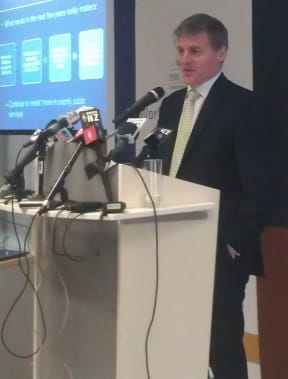Labour says the Government must resume payments to the SuperFund as soon as it gets into surplus, to ensure the country can meet the looming demand for superannuation.
The Government's annual statements show spending increased in the last financial year to about $70-billion, driven in part by more people taking up New Zealand superannuation.
The Finance Minister says payments to the SuperFund will start again once the Government gets on top of its debt.
Bill English says the Government remains on track to have the books back in surplus by 2014/15.
But Labour's finance spokesperson, David Parker, says the Government needs to pay down debt and resume SuperFund contributions at the same time.
He says the payments are profitable over time because the Crown's cost of funds is lower than the return on the investment.
Operating deficit more than halves
The Government's operating deficit before gains and losses has more than halved for the last financial year, to $4.4 billion, compared with $9.2 billion the previous year.

Bill English detailing the deficit improvement. Photo: RNZ
The financial statements for the year to the end of June 2013 were released on Monday afternoon.
The result is a $3.5 billion improvement on the forecast from last year's Budget, of a $7.9 billion deficit.
Finance Minister Bill English says the deficit is smaller because of higher tax revenue and core Crown expenses being lower than forecast, partly as a result of the Government having to spend less on the Canterbury rebuild than expected.
Net Crown debt increased to $55.8 billion, up from $50.7 billion the previous year.
That's forecast to rise to more than $70 billion in 2017.
Mr English says there will be further savings, especially in welfare spending, because the Government has been working to help people out of welfare dependency.
"We're creating a system here where we can get transparent accountabiity and performance," he told Checkpoint, "and we get much more active - moving from a passive industrialised model, mass production for the welfare system - to a personal model of support and that's going to help the Government's books."

